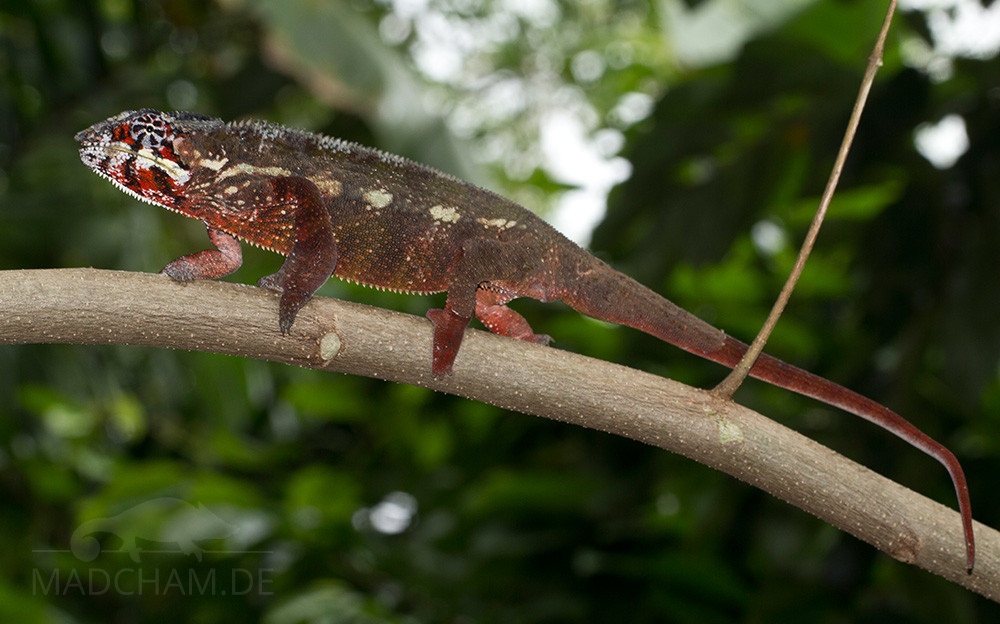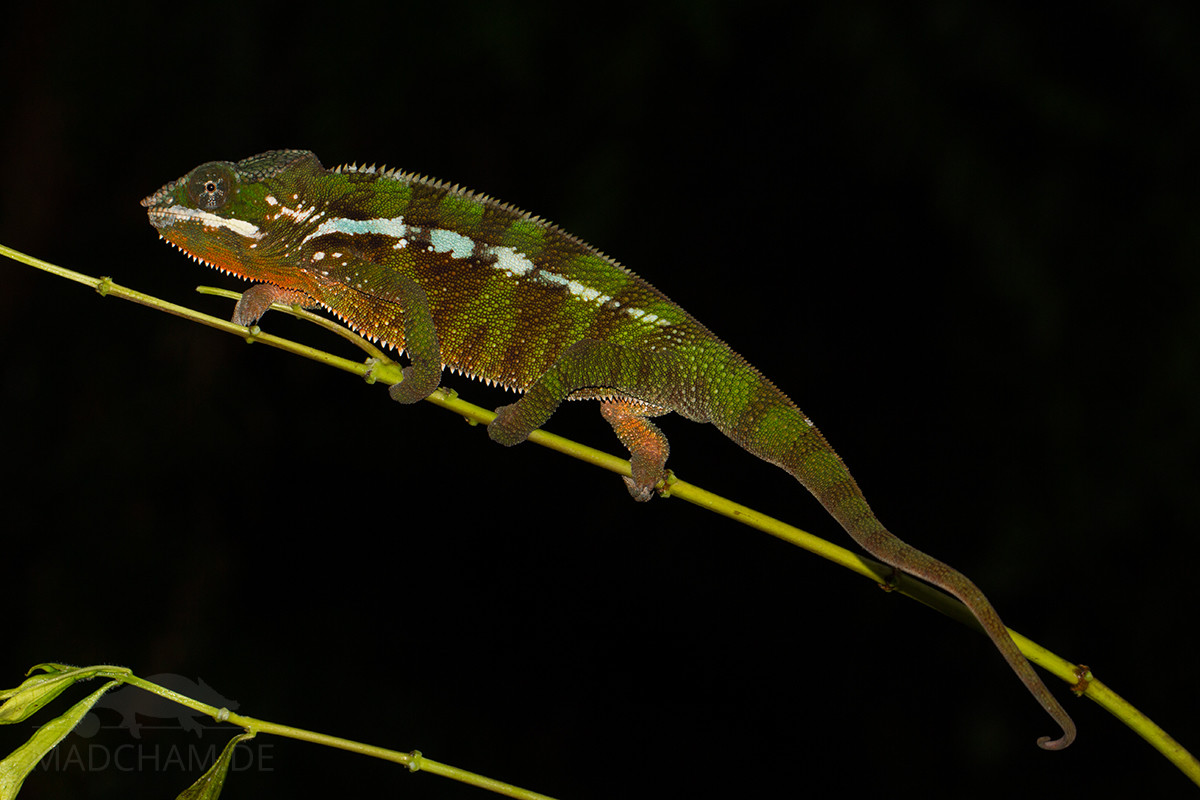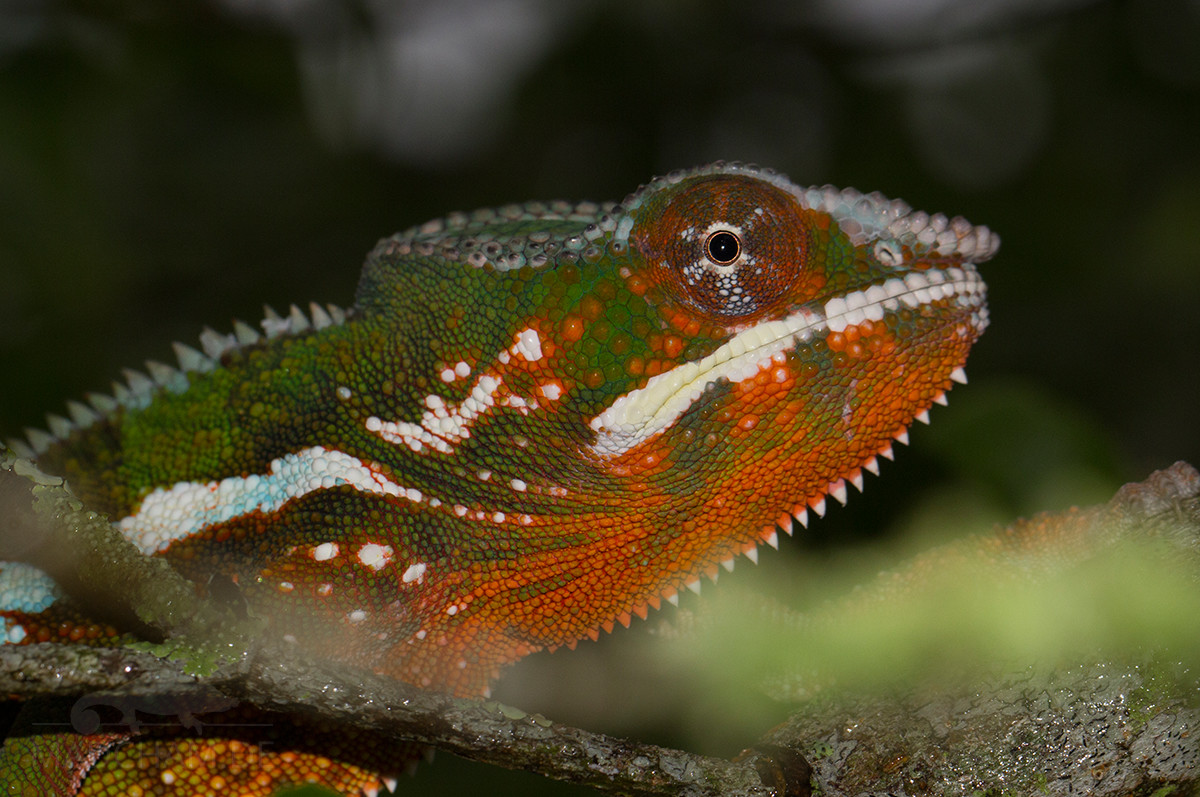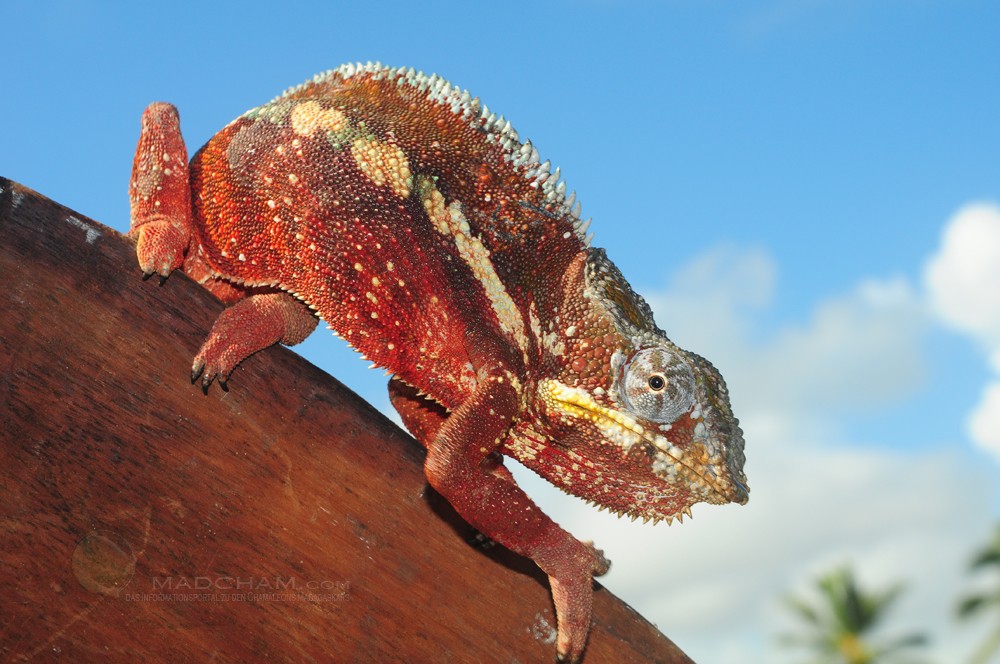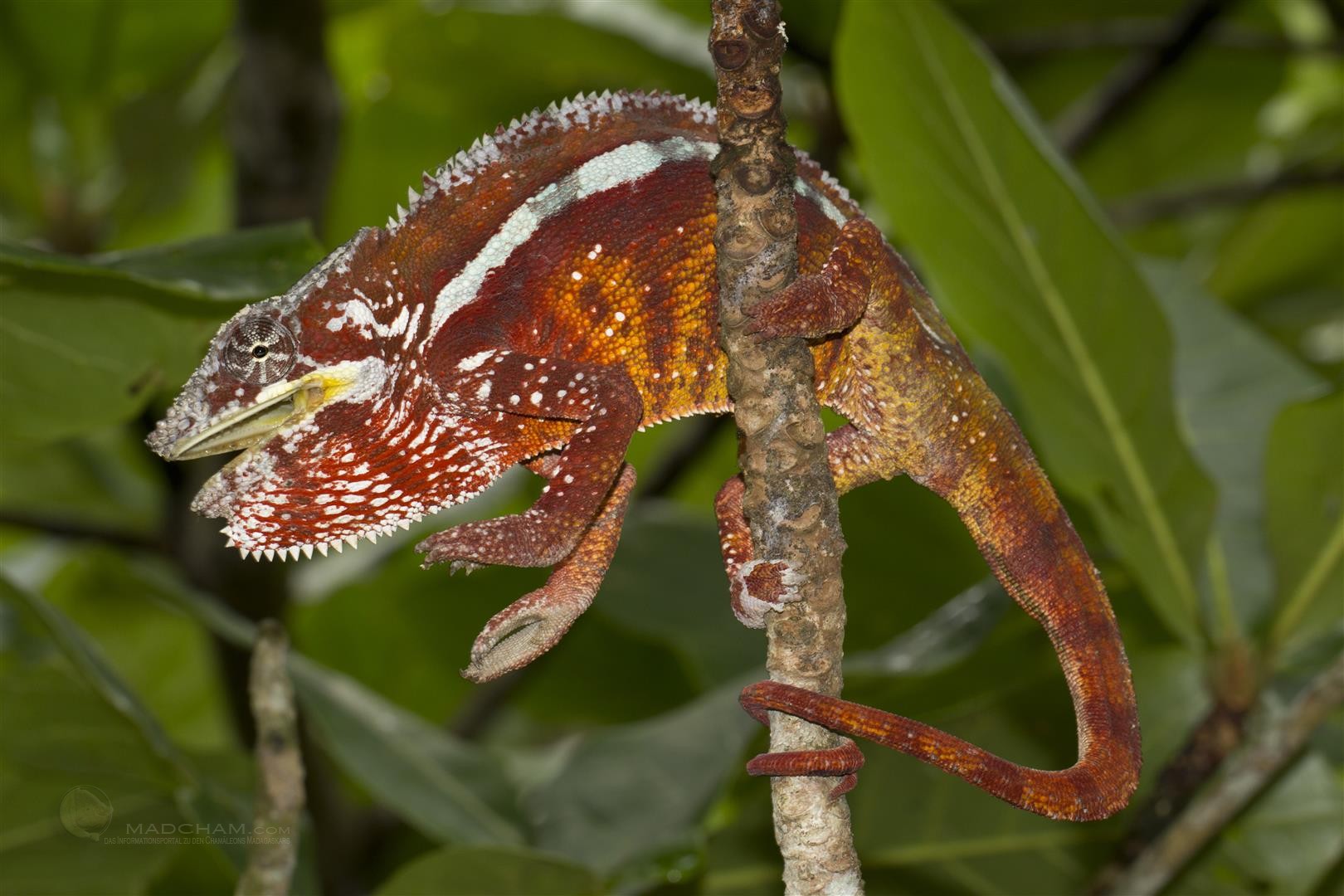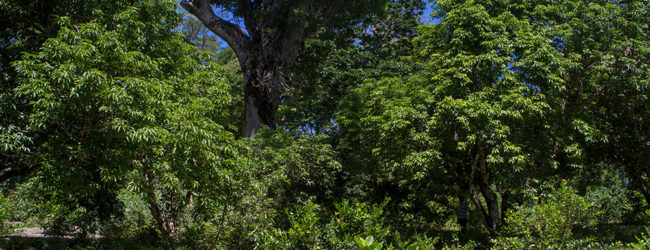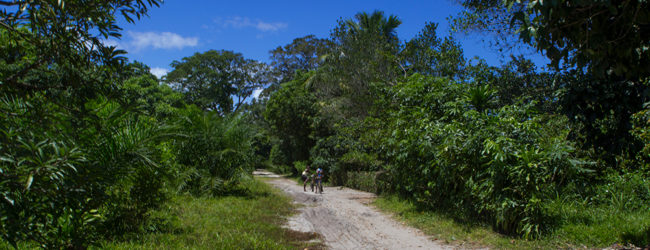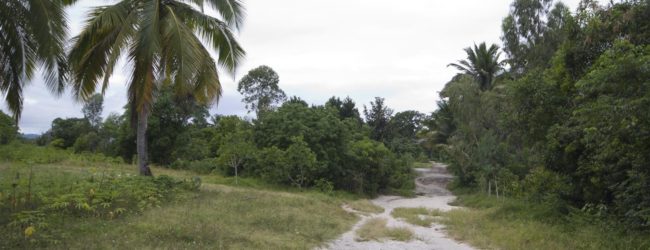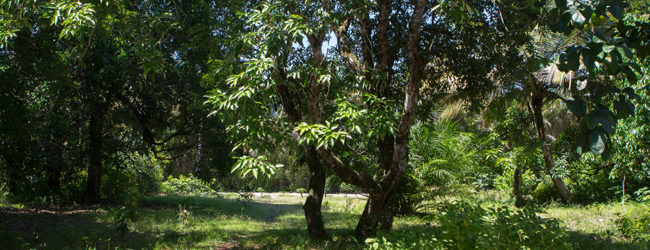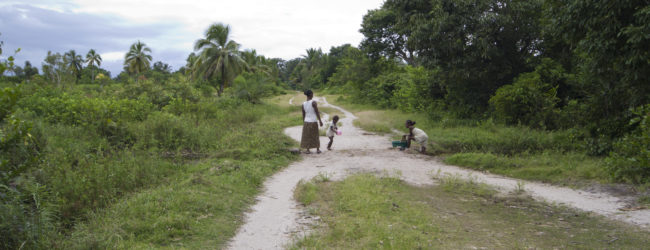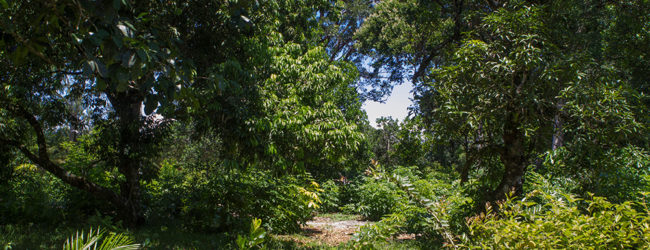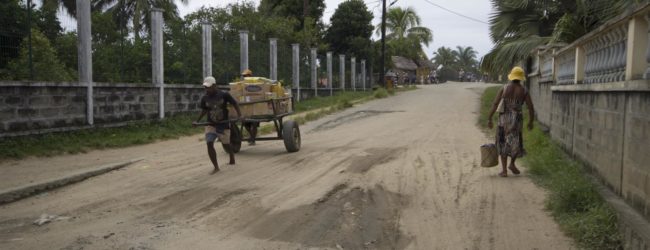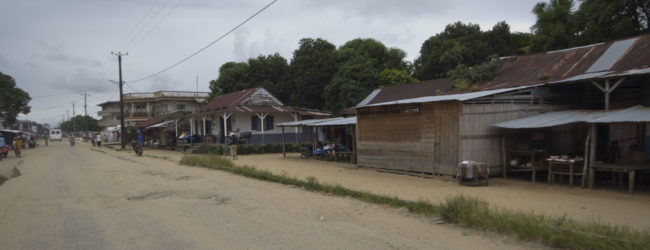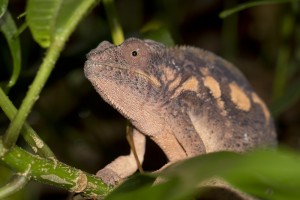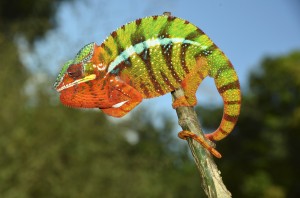Distribution of the local form Maroantsetra:
Maroantsetra is a city in Analanjirofo region on Madagascar’s eastcoast. It is located at the northern end of Antongil bay and thus starting point of journeys to Masoala national park or to the island Nosy Mangabe. The city has a tiny airport, and some boats from Toamasina (Tamatave) go there (about 24 hours of driving time). As the market and trade center of the region, the city has grown to 25.000 inhabitants, and many huts gave way to saloon-like wooden and stone houses. Only one partially asphalted street leads from the airport to the city and ends there in a sandy path. Via overland route, Maroantsetra is hardly accessible, since the RN5 coming from Toamasina is mostly a non-drivable mud slope and many bridges and ferries have been destroyed.
The local form of Maroansetra is separated from the Masoala peninsula to the east by the Antainambalana River. The river rises in the protected area of the Makira mountain massif northwest of Maroantsetra, which also forms a natural barrier. There are several rivers between Maroantsetra and Manananara in the south of Antongil Bay.
Appearance of the local form:
The males here wear a deep red when excited, which tends to turn orange, especially in the belly area. Younger and more relaxed males are similar to the local forms Masoala and Mananara in that they are green with more or less strong orange tints on the head and belly.
Weight table
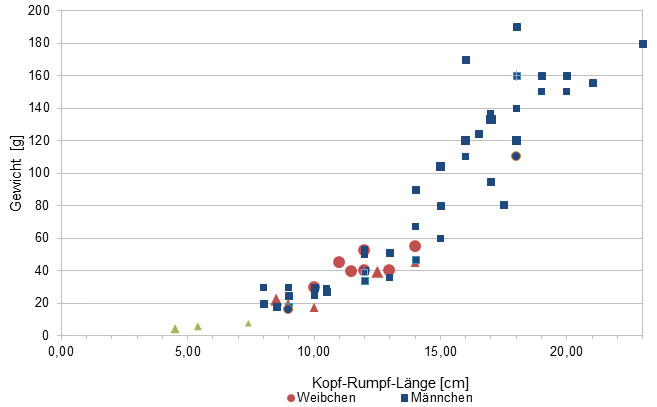
Gewicht = weight in grams, Kopf-Rumpf-Länge = snout-vent-length in cm, Weibchen = females, Männchen = males
Since 2015 we have been measuring the weights of chameleons we have found in Madagascar, as far as the animals (and our scales) are participating. So far there are only a few weights, in the long term an average weight in relation to the snout-vent-length It is important to know that all weights were measured towards the end of the rainy season (= best food supply), so they are probably maximum weights in Madagascar. Triangular symbols in females do not mean pregnant, round symbols mean pregnant. In the case of Furcifer pardalis, contrary to our original assumption, there have been no serious differences in the ratio of SVL to the weight of the individual local forms.
| Jan | Feb | Mar | Apr | May | Jun | Jul | Aug | Sep | Oct | Nov | Dec | |
| Avergage temperature | 24 | 25 | 24 | 24 | 24 | 23 | 21 | 20 | 21 | 22 | 23 | 24 |
| Minimum temperature | 20 | 21 | 20 | 20 | 18 | 17 | 16 | 16 | 17 | 17 | 19 | 20 |
| Maximum temperature | 28 | 29 | 28 | 27 | 25 | 25 | 25 | 25 | 25 | 27 | 27 | 28 |
| Rain days | 26 | 23 | 25 | 19 | 17 | 18 | 21 | 21 | 16 | 17 | 20 | 24 |
We have collected the data given above over several years with thermometers and hygrometers at the finding places of the chameleons. "Average temperature" means that values of a whole month have been calculated to one average value per month. For example all measured minimum temperature values of February have been calculated to one average minimum temperature for February. In plain language, this means single peak values of a day may be a little higher or lower than the average minimum and maximum temperatures. It is possible that a location has an average maximum temperature of 29°C, but one day during that month it had 33°C or even 35°C there.
Several examples of a daily pattern of temperatures in Maroantsetra during the rainy season are given below. They were recorded with data loggers in 2023.
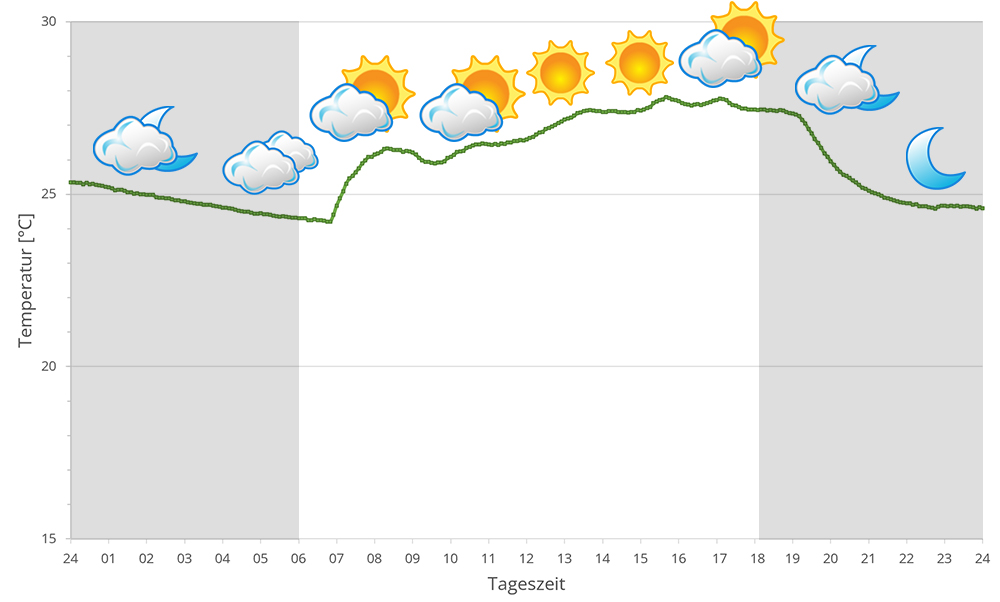
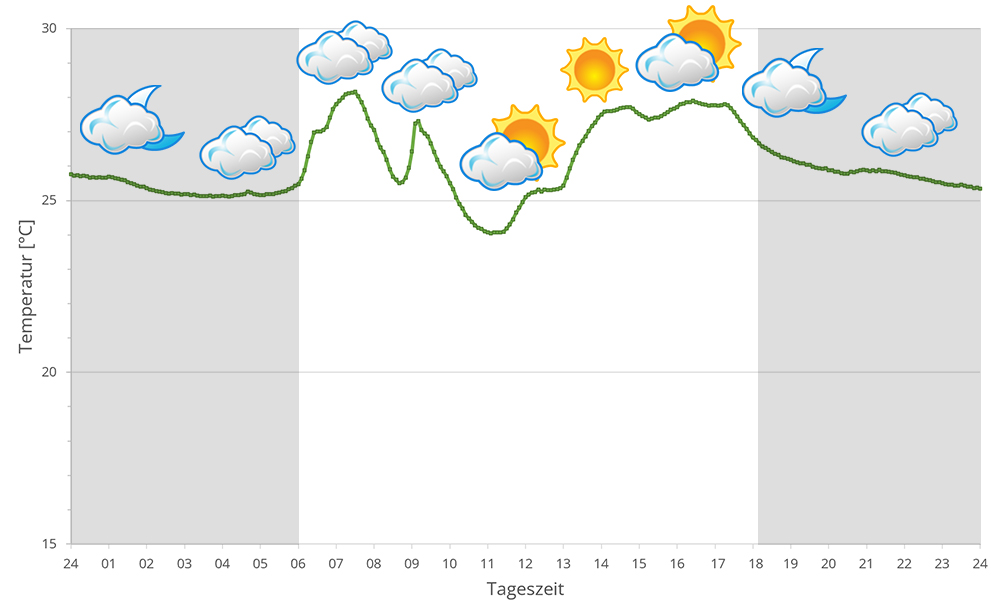
Maroantsetra is located directly on Antongil Bay. During the rainy season, it rains very intensively every day, but regular rainfall is also present during the dry season.
From October to April it is warmer than usual in Maroantsetra, with temperatures reaching over 30°C in sunny spots. At night, temperatures drop only discreetly. The rest of the year, from May to September inclusive, is different: temperatures plummet to 16°C at night during the dry season, while it remains Mediterranean warm at night. In 2023, we used data loggers to measure relative humidity on several days in Maroantsetra during the rainy season, the data can be found below.
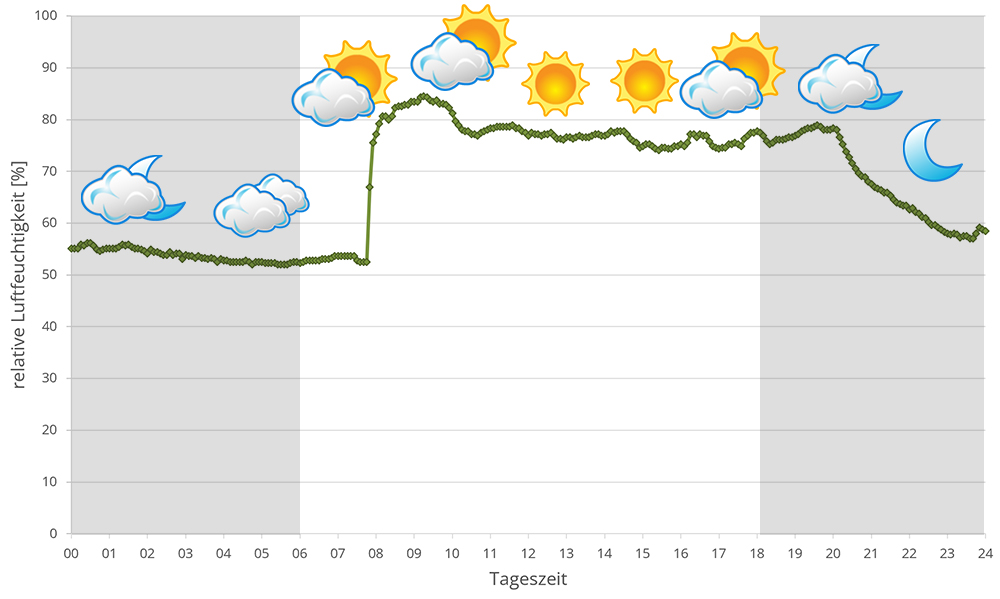
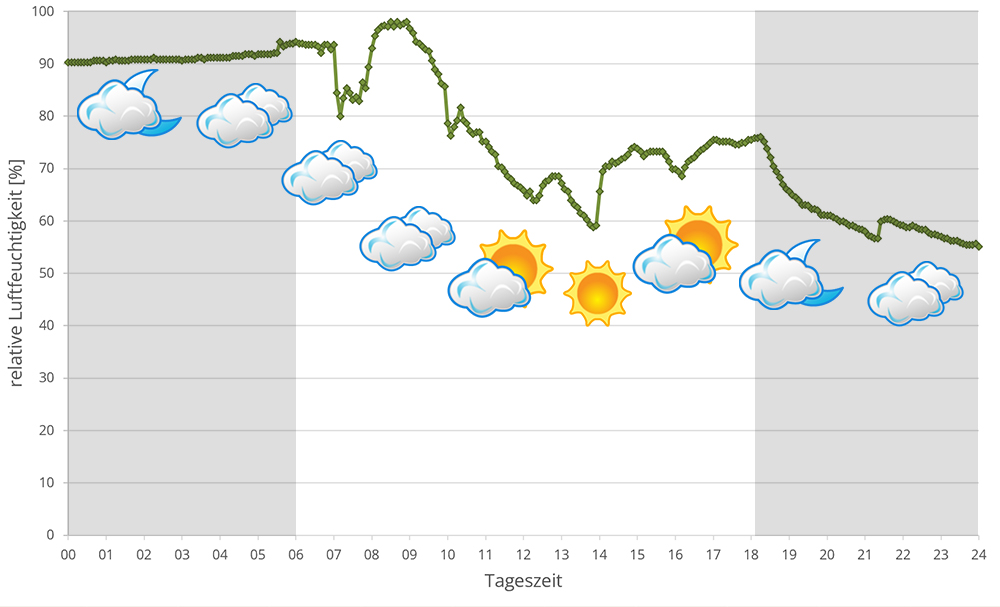
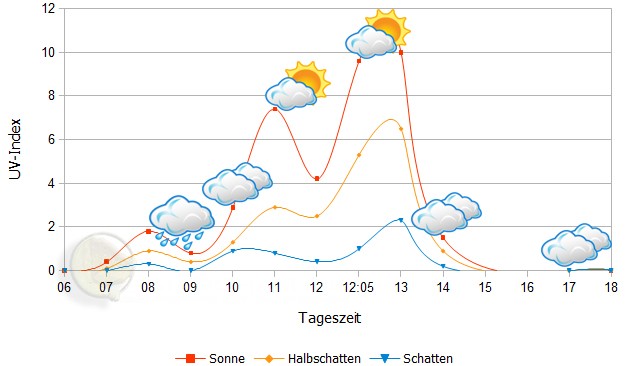
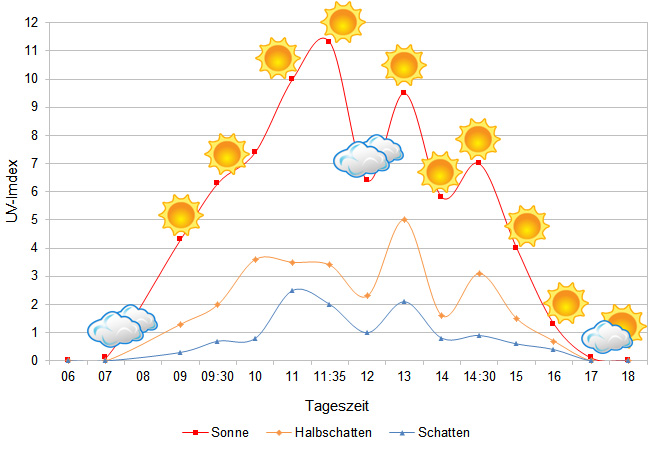 Tageszeit = day time, Sonne = sun, Halbschatten = half shade, Schatten = shade
Tageszeit = day time, Sonne = sun, Halbschatten = half shade, Schatten = shade
We have measured UVB data with a Solarmeter 6.5 in spring (end of March) at the peak of activity of chameleons in Madagascar. We always measured the values that a chameleon could maximally reach in its habitat.
In 2023, in addition to other climate data, we also measured the air pressure at the places we visited in Madagascar. The following data is from several days during the rainy season in Maroantsetra. The X-axis shows the time of day or night. In Madagascar, the day begins around 6 am and the night starts at 6 pm. The Y-axis shows the atmospheric pressure in hPa.
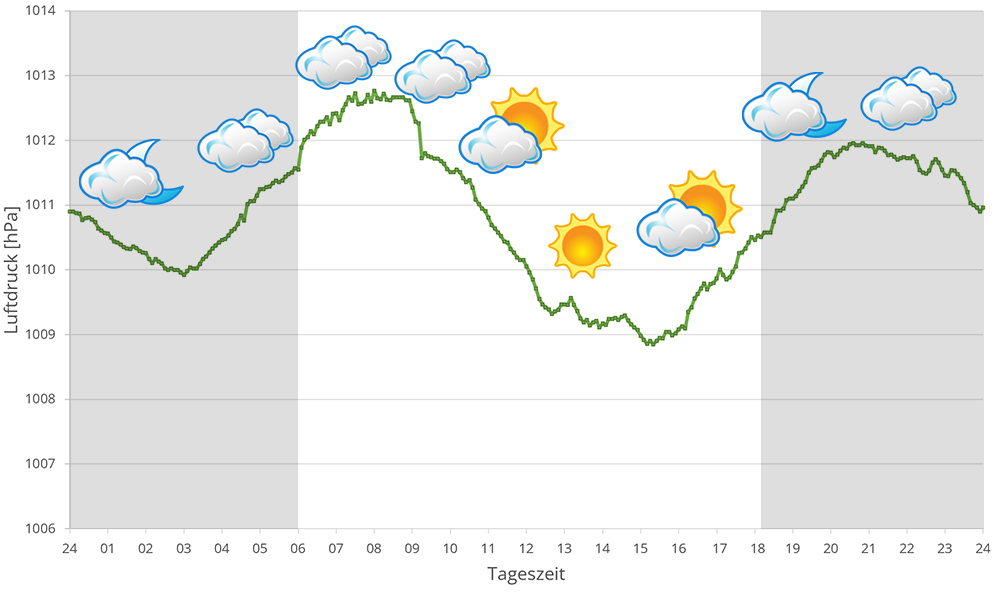
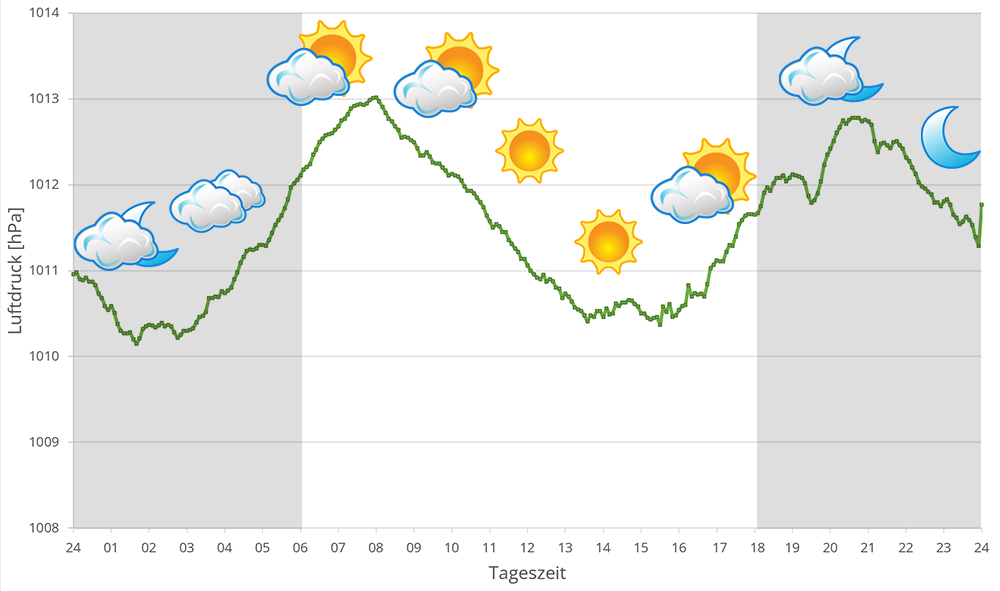
Habitat:
In and around Maroantsetra, panther chameleons can be easily found in open areas during the rainy season and within the town itself in bushes and trees. The soil is mainly sandy and the animals prefer to live on mango, cinnamon, and other large trees. Tall bushes are also readily accepted. A few palms and ravenalas can also be found in the vegetation, but these are rarely visited by chameleons.

